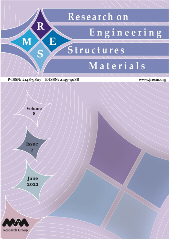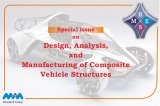Technical Note
Experimental investigation of spalling effect of elevated temperature on concrete containing waste plastic aggregates
Lalit B. Pawar1, Keshav K. Sangle1, Yuvaraj L. Bhirud2
1Department of Structural Engineering, Veermata Jijabai Technological Institute, Mumbai, India.
2Department of Civil Engineering, SNJB’s LSKBJ COE, Chandwad, Nashik, India
Keywords
Abstract
Spalling;
Pore pressure;
High temperature concrete;
Waste plastic aggregates;
Fire resistance;
Concrete beams
Fire spalling significantly increases the overall heat deformation of a fire-damaged building, resulting in significantly greater repair costs and, in certain situations, jeopardizing structural stability owing to the loss of reinforcing protection and lowering of bearing cross-sections. Due to intrinsic material characteristics such as unstable fracture behavior and limited permeability, elevated concrete is particularly susceptible to shear. Hence in this paper to improve the thermal stability of structures, aggregate waste plastics are added to the concrete to reduce the pore pressure generated inside the concrete subjected to a thermal environment. Here plastics are added to the concrete mix in various weight proportions as 0%, 10%, 20%, 30% and 40% thereby fabricating three types of specimens as cube, cylinder and beam which are then checked for volumetric degradation stability subjected to various thermal gradients like normal temperature, 600°C and 800°C respectively. Finally, the spalling of concrete at various plastic proportions under varying environments are investigated and the best way to incorporate plastic waste aggregates into concrete is explored.
© 2022 MIM Research Group. All rights reserved.

